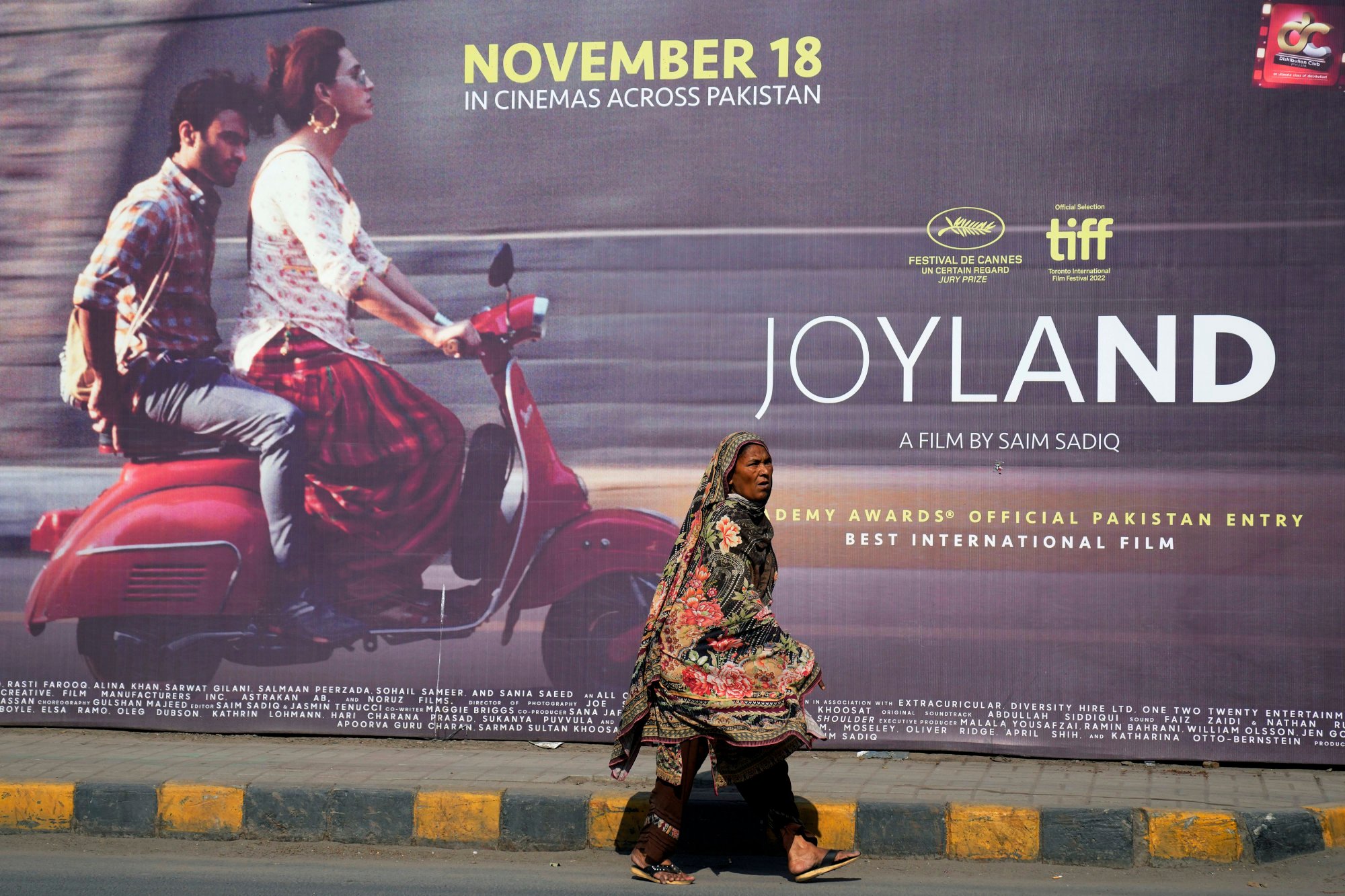It’s the morning before school and Nagini puts on her blue and green school uniform, covers her hair with a loose, white scarf and packs up her school stuff. She holds her headscarf over her mouth as she laughs.
Nagini may seem like any other pupil at a Pakistanischool. But hers, in Lahore, is special. She is part of a new pilot scheme which offers education to young transgender, or trans, people in Pakistan. The country’s conservative, religious culture traditionally shuns those who belong to the queer community.
Trans people are those who do not identify with the gender assigned to them at birth. They are a part of the LGBTQ community, along with lesbian, gay, bisexual and other queer people.
The trans community in Pakistan also includes intersex people, who were born with reproductive organs which do not adhere to a strict gender binary.
According to the law in Pakistan, it is illegal to discriminate against trans people. Since 2018, trans people have been allowed to decide on their own gender.
But they are far from experiencing social acceptance.
Nagini was abandoned by her family as a child. She was left to beg on the streets of Lahore at only five years old, a city with a population of millions.
Today, aged 25, she is catching up on an education that was never offered to her.
“You are all welcome here. You are important. You are beautiful. You are worthy. You are valued,” it says on the classroom door, words which Nagini and her classmates do not take for granted.
There is also a school for trans people in Punjab.
People who are trans in Pakistan, so-called khwaja siras, face serious exclusion from society. Often, they end up on the street or forced into prostitution just to survive. They join together in communities that are led by a kind of guru and often end up taking on new names. Nagini was also once called something else.
“It is a small, but a compact set-up,” says the Lahore school’s project manager Bilquis Rehana Saroya. “The ultimate objective is to make transgender people learn something that makes them able to earn a livelihood.”
The school has no age limit. In the colourfully decorated classroom, the students can learn English, mathematics or sewing. But above all, they learn that they are allowed to have dreams.
Nagini says she never knew what it was like to be able to take charge of her own life.

At school she feels safe, but outside the school’s walls, there is a still a long way to go before she feels accepted. Given the fact that trans people in Pakistan are often forced into sex work, they end up being socially ostracised.
Khwaja siras are also often booked to perform dances at weddings, although this does not help their reputation.
In the last eight years, 150 trans people have been killed in Pakistan, according to official figures. These figures do not include the thousands of cases of violence and harassment trans people face. Many cases are never even investigated by the police, says activist Namkeen Peshawari, which only serves to fuel the violence.
“I have seen many murders of transgender people ending up in the cold storage of police record. Justice was never done,” said the activist, who runs a self-help group in her community, based in the northwestern city of Peshawar.
It was not always like this. Khwaja siras were once held in high esteem in the region. Under the rule of Muslim Mughals hundreds of years ago, the trans community was among the few with access to harems at the royal court, says historian Mubarak Ali. All this changed once the British colonised the region, Ali explains.

Trans people are not giving up, however. They are fighting for their recognition.
A special madrasa, or higher education institution, was set up for khwaja siras in Pakistan’s capital, Islamabad, in 2021. The aim is to create a safe space for trans people to study the Koran or simply congregate, says founder and activist Nayab Ali.
The madrasa also offers emergency shelter for those who need it.
There are plans for more trans schools in Lahore. Project leader Saroya faces a number of challenges, however. Uniforms and transport to school have to be free of charge seeing as trans people often live in poverty. Many khwaja siras also have to be persuaded to attend school.
Nagini, on the other hand, is sure that she wants to finish up her schooling. She says she does not want her future to be begging on the streets.
Source: South China Morning Post


